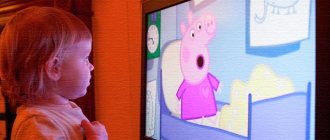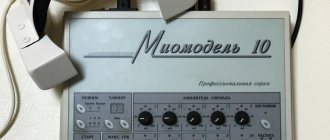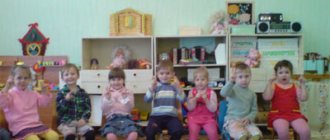An important indicator of the intelligence of a preschooler is the development of speech at the age of 5-6 years. At this age, the child knows 3000-4000 words and pronounces most of the sounds correctly. Children are able to construct detailed phrases and give detailed descriptions. To improve pronunciation and develop vocabulary, didactic games, finger and articulation gymnastics are used.
The speech development of a 4-5 year old child is very important.
Features of speech development 5 – 6 years old
All components of speech at this age are improved, because they are necessary for further school education.
Phonetics: pronunciation of sounds
A 5-year-old child is ready to pronounce all sounds correctly. But some children still cannot master sibilants and “r” (it is replaced with “l”). Moreover, in isolation they can pronounce “r” correctly, but not in words. Even those elements that they always say correctly can “limp” in words with a complex syllable structure.
A characteristic feature of the speech development of a 5-year-old child is that he notices how his friends speak and his own mistakes, that is, he becomes critical.
Vocabulary of preschoolers
It is between 2,500 and 3,000 words. The dictionary is supplemented with generalizing words.
Another feature of speech development at 5–6 years old is that children operate with many concepts. They can name natural phenomena, household items, seasons, professions, types of transport, animals (domestic and wild), birds, fruits and vegetables.
Moreover, they have an idea about, for example, how fruits and vegetables are grown, what changes occur during different seasons, about which animals live in the forest and which on the farm. They orient themselves in space, know the names of months, days of the week, holidays, and traffic rules for pedestrians.
They like to talk about what they see and what is happening. Communication contributes to the development of speech, and vice versa.
They speak simple words correctly, do not change or skip syllables. But complex or unfamiliar words can be distorted.
Grammatical structure of speech
In most cases, children speak in common simple sentences, but complex ones appear. Sentences become more grammatically formed - they contain the main parts of speech.
Collective nouns appear (children, linen, foliage), adjectives that denote the properties and state of things (icy, frozen). Abstract concepts (heartfelt, sweet, kind) are accessible to children.
The following features of speech development are identified at the age of 5–6 years: children correctly use prepositions, conjugate nouns according to cases and numbers, coordinate nouns with numerals (three bullfinches, five chocolates), form possessive adjectives (mother’s, fox).
Children may incorrectly use nouns in the nominative, genitive cases in the plural (pencil - many pencils) and prefixes with spatial meaning (came up, came in, entered). This is considered normal for speech development at this age.
Speech coherence
Preschoolers speak quite coherently, consistently and logically. They can make up a story based on a picture or a series of illustrations, or retell a short story or fairy tale of 50 sentences. They can conduct a monologue and operate with phrases. They have sufficiently developed speech skills to accurately express their thoughts, desires, and share their impressions.
Normal speech development in a 6-year-old child
The following features are characteristic at this age:
- The vocabulary includes up to 3000 words, they are memorized on the fly;
- Children pronounce all sounds;
- The articulatory apparatus is fully formed;
- Word creation is “dying away”;
- They know how to control their voice - tone, volume;
- A simple sound analysis is available: they can find a sound in a word and select words that begin with it;
- They operate with generalizing words, different categories (dishes, transport, seasons, wildlife);
- Development of coherent speech 5 – 6 years.
Engage with your child. Talk a lot, conduct a dialogue, answer questions, read and discuss books, films - all this contributes to the development of speech. Exercises you can do at home are effective.
Why are speech games needed?
Speech therapy game is the optimal method for developing speech skills. All children love to play. And if you combine business with pleasure, you will be able to form:
- rhythm and clarity of speech;
- ability to place accents;
- large vocabulary;
- coherent speech (in the form of monologue and dialogue);
- correct articulation;
- skills in choosing the desired grammatical form of a word;
- basis for learning to read and write.
Kids like games much more than tedious exercises for finding mistakes and repeating difficult to pronounce phonemes. Motivation for such activities is much higher, and therefore the game form of learning is the most effective.
When playing with a child, a parent must give him the opportunity to fully express his feelings and experiences. Otherwise, the baby’s interest in communication and speech activity decreases. Don't put pressure on children. If you can’t find a word, you can replace it with facial expressions and gestures.
Speech development games at home
We offer a set of exercises. They are held in the form of a game:
- Days of the week. We name the days of the week, clap our hands - one clap per syllable. Then the parent simply claps, and the children guess the day of the week;
- Let's listen to the words. An adult chooses a topic, for example “Farm”, and 3 words on this topic (cow, carrot, field). Then he makes up a story with these words. The task is to jump every time an adult says one of three words;
- Let's rhyme. An adult chooses any word and comes up with rhymes for it. Then he describes him without naming him. For example, “bicycle” is “what is sent to grandparents in a letter” (“hello”). Preschoolers must guess it;
- If I... The adult comes up with phrases that begin with “If I...”, and the children must complete them. “If I go to bed in my clothes”, “If I don’t eat porridge”, “If I suddenly become big”;
- Apple relay. You will need apples with matches. Matches are stuck into the fruit and given to the baby. He must take out a match, describing the apple: red, plump, round, ripe;
- Part and whole. To play you need a ball. The adult throws it to the baby and names a part of some object (fender, screen, steering wheel). The preschooler must immediately say which thing the part belongs to and throw the ball back;
- Finish the word. You will need a ball. The adult throws it to the child and says the initial syllable of any word. The preschooler’s task is to finish the word by throwing the ball back;
- Opposites. We study antonyms. The parent says the word (sweet, big), and the child says the opposite meaning (sour, small). It's even more interesting to play with the ball;
- A hundred questions. Dad or mom takes several items that are well known to the child. For example, a book, a fork, a banana, a toy. You will also need 50 chips. The game consists of the child asking questions about each thing. They can be the most incredible. For each question the kid gets a chip. You can play alone, but it’s more interesting in a group of several people;
- Nonsense. The parent talks about different consoles - non-, mini-, maxi-, anti-, archi-. You need to make sure that the child understands and remembers everything. Then he names any word, and the preschooler must add a prefix from those listed and talk about what has received a new name. For example, an anti-dog: what it is like, where it lives, what it likes, what it looks like. If several children are playing, the adult “distributes” one console to each one, and then says a word - each participant adds his own console to it.
Both one child and several of his friends (up to 6 people) can take part in the games. The more people, the merrier.
Development of lexical richness
Classes on speech development are best conducted using a playful method, giving the child the opportunity not only to gain useful knowledge, but also to have fun. You can invite a fairy-tale character to visit and ask your child all sorts of riddles. For example, today Mishka came to see us, it’s his friend Marten’s birthday today - let’s come up with as many kind words as possible for the birthday girl. The child tries to select various epithets that characterize the animal by color, appearance, character traits, and behavior.
Next, Mishka asks the following riddle - “Finish the sentences”:
- If the cat cannot find his house, we... (try to help him);
- If the flower has withered, then... (it needs to be watered);
- But the fox is bored, she... (needs to be cheered up). How are we going to make her happy? (Let's tell her a poem). Next, a poem is woven into the lesson, in which there are many words with a certain sound, the child’s task is to recite it expressively.
Now Mishka is wondering what the child was doing on the street yesterday. The child’s task is to compose a short coherent story about how he played in the sandbox or fed the pigeons.
It is important for parents to offer a topic for the story so that the child will be pleased to remember it. So, if yesterday another child broke his favorite toy, then it is better not to remind him of this event, but to offer to talk about something positive.
The bear should definitely thank the child for his efforts, but experts do not advise crushing a gift, even sweets, otherwise the baby may develop the habit of associating his work with a reward and not trying if there is none.
Symptoms of delayed speech development in children 5–6 years old
The diagnosis of speech development delay (SDD) is made if the speech of a 6-year-old child is far behind age norms. Here are the criteria that can be used to assume that a preschooler has speech development disorders:
- Poor vocabulary: less than 2500 words;
- Cannot make up a story from a picture or retell a story;
- Cannot highlight the main thing in a story;
- Insufficient development of coherent speech 5 – 6 years;
- Does not pronounce sounds;
- The voice is slurred, unclear, monotonous, endings are “swallowed”;
- Cannot evaluate the actions of the hero, compare the heroes of a fairy tale, film, cartoon.
If there are speech development disorders in children 5–6 years old, contact a speech pathologist. Don't wait for your baby to speak up on his own - it won't happen. Therefore, consult a speech therapist as soon as possible and begin correction. After all, with speech development disorders, children have a much harder time with the school curriculum, it is difficult for them to socialize, make friends, and self-esteem decreases over time.
Prevention of speech delay
The formation of a senior preschooler’s perfect speech is influenced by his living conditions, the characteristics of his parents’ upbringing style, and, most importantly, the efforts of caring adults. To avoid finding yourself on the threshold of school in a situation where a child has discovered numerous speech disorders and there is no time to correct them, you need to take care in advance of the harmonious development of the child’s speech.
To solve this problem, close communication between children and adults is of great importance. Walking together, doing creative work, looking at book illustrations with a parallel discussion of what they saw and felt. This work will give a powerful impetus to the development of the baby’s speech. It is very valuable to learn and use such rich material as counting rhymes, tongue twisters, poems, riddles, sayings, nursery rhymes, and proverbs. All words that children do not understand need to be explained and ensure that they are used correctly.
Reading children's literature should be accompanied by a conversation about the actions of the characters and an explanation of incomprehensible words. When memorizing poetic works, it is very useful to replenish a child’s vocabulary by drawing his attention to the figures of speech used by the author. “A dark forest that covered itself with a wonderful hat...” “What hat did the poet write about?” “And fell asleep under her quietly, soundly...” “Do you think the forest can fall asleep?” “How do you understand the word restlessly?”
In order to fully prepare for schooling, a child of five to six years old must be able to coherently express his thoughts and construct logical, complete statements. It is important to correct deficiencies in sound pronunciation in a timely manner, to teach children to use their voice and means of expression. If children receive a lot of positive information from the outside world and from fiction that they can discuss with adults, this greatly stimulates children's speech development.











